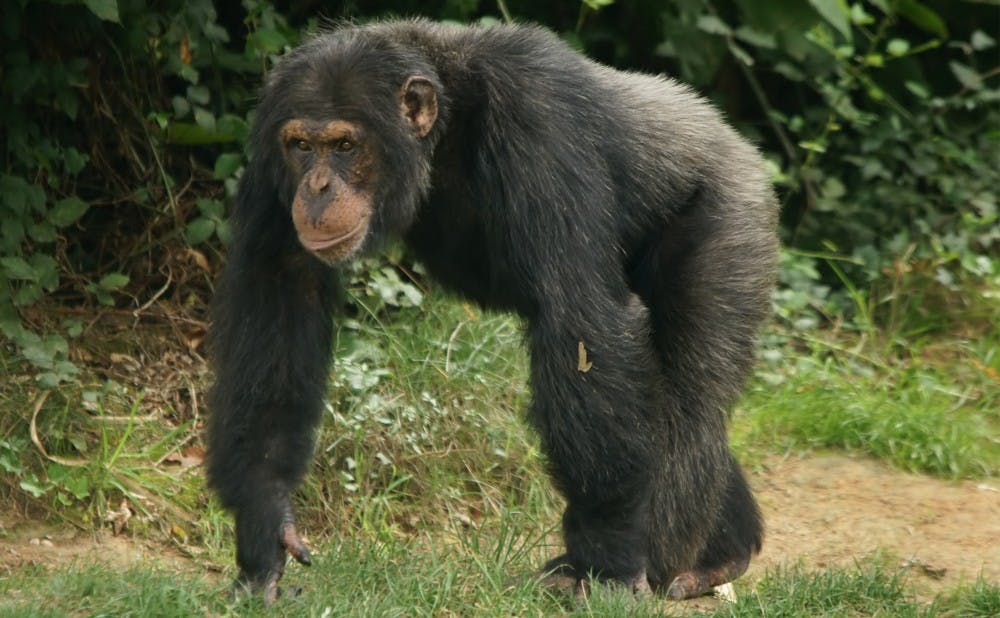Chimpanzees may have higher standards when it comes to picking mates than was previously understood.
According to a new Duke study, female chimps not only avoid breeding with close relatives, but also are more likely to reproduce with partners that are genetically dissimilar from themselves. The researchers analyzed the DNA from approximately 150 chimpanzees in Tanzania's Gombe National Park to see how closely related they were. An chimp was considered inbred if its father shared 25 percent of its genes with the chimp's mother—related at the level of half-siblings.
Inbreeding can lead to less genetic diversity in a species and increased prevalence of harmful recessive alleles. With relatively long childhoods and low numbers of offspring, female chimpanzees have developed strategies to increase genetic differences between themselves and their mates. Many migrate away from the group they were born into.
This study's findings confirmed and even exceeded hypotheses regarding the avoidance of mating with genetically similar individuals.
“The results were surprising. We had expected to find that natal females would have a much higher rate of inbreeding than the immigrant females who join a [new] community and aren’t related to any males,” said Kara Walker, the study's first author and a postdoctoral associate in evolutionary anthropology.
Natal females—or females who remain living in the group to which they were born—were not the only ones who avoided breeding with relatives. Those who left the group were even more likely to reproduce with genetically dissimilar mates, the study found.
Walker noted, however, that how chimpanzees are able to distinguish non-relatives from relatives and determine degrees of relatedness remains uncertain.
Although the trend of breeding with dissimilar mates was true in the study of chimps, past research has generally failed to provide a distinct pattern. Among pigeons and bats, the opposite trend has been found—individuals actually tend to prefer genetically similar mates.
As for how human pick their partners, Walker noted the likelihood “that humans have a similar ability to detect a degree of relatedness involving the immune system and the MHC gene.”
Studies have linked humans' odor preferences, perception of facial attractiveness and mate choices to immune system genes, but the results have been mixed. Walker's study in chimps, on the other hand, is providing new evidence that genetic opposites may attract.
Get The Chronicle straight to your inbox
Signup for our weekly newsletter. Cancel at any time.

